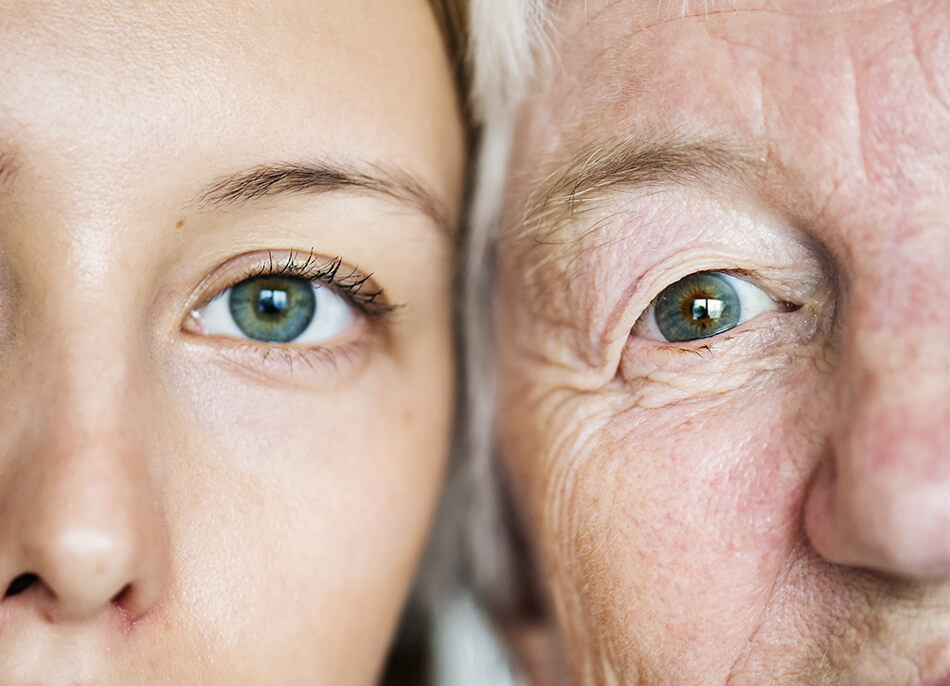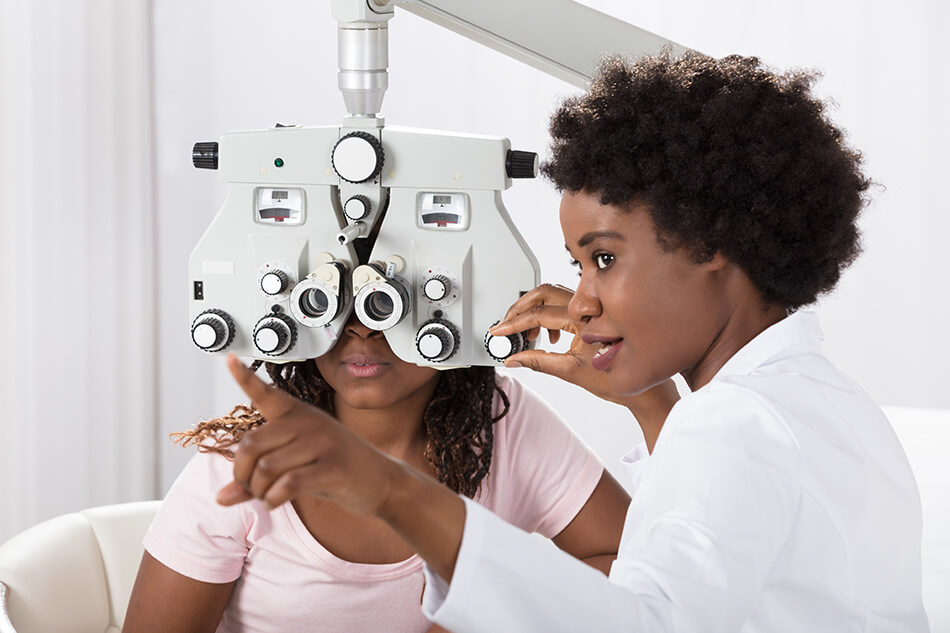Six Expert Tips to Protect Your Eyes

No one should take their vision for granted, but if you wear contact lenses or glasses you have to work a little harder to protect your eyes. Following a strict contact lens cleaning regimen might not be fun, but it’s necessary. Something as seemingly insignificant as an unwashed lens case can cause serious infection. In addition to your daily eye care routine, include eating well and blinking more often. Read on for our experts’ six top tips for protecting your eyes.
1) Listen to Your Eye Doctor
You should undergo an eye exam once per year, whether you have problems with your eyes or not. If you intend to change your contact lenses or glasses you should get an eye exam to make sure your prescription is still valid. During an eye exam, you will usually discuss your personal and family medical history. An optometrist will conduct a series of vision tests to determine whether you are nearsighted, farsighted or have astigmatism. Next, they will conduct an eye pressure test, examine the health of your optic nerve, and conduct a microscopic examination of your eyes. These tests help to protect your sight as they can spot risk factors early on. Prevention is always better than cure.

2) Practice Good Contact Lens Care
If you wear contact lenses, you must protect your eyes with good lens care. Otherwise, all the technological advances in contact lenses won’t matter. Poor lens care can lead to an increased risk of infection.
Four factors that put you most at risk of a lens-related infection are:
- Use of extended-wear lenses
- Reduced tear exchange
- Environmental factors
- Poor hygiene
Wearing your weekly, monthly, bi-monthly or quarterly lenses for longer than you should is dangerous. Schedule a reminder in your calendar to re-order your lenses, so you never run out.
Or better yet, make the switch to daily disposable lenses. Many eye care experts agree that using the newest daily lenses is the best way to protect your eyes. Once you make the switch, you never have to worry about cleaning your lenses again. Every fresh set of lenses you open are already sterilized, reducing the risk of infection.
Even with daily disposable lenses, you must follow these rules:
- Never wear someone else’s lenses, even if you think the prescription is the same as yours.
- Never sleep in your lenses.
- Don’t get your lenses wet at the swimming pool or in the shower.
- If your eye is irritated stop wearing your lenses immediately.
3) Protect Your Eyes from the Sun
Skin cancer is the most common cancer in the United States. Thankfully we’re all more educated now about the risk of skin cancer and better at protecting our skin; but do you take steps to protect your eyes from the sun?
Overexposure to UVA light can cause cataracts, growths in the eye, and eye cancer. Anyone who spends long periods of time outdoors in summer or winter months is at risk.
Ophthalmologists recommend wearing sunglasses with total UVA and UVB protection whenever you’re in the sun. Even when it’s overcast, be vigilant against UV rays. Wear polarized lenses to reduce glare while you drive, and be sure to protect children and the elderly, as they are at greater risk. Also, consider only buying contacts with UV protection if you spend lots of time outdoors.

4) Wear Eye Protection in Water
If you wear contact lenses, it is imperative that you remove your lenses or wear eye protection, like goggles, in the water.
Most people can’t be bothered to take their lenses out every time they have a shower or go for a swim. Yet getting your contacts wet, even in fresh water, puts you at risk of serious infection.
Bacteria in water can cause both microbial and ulcerative keratitis. The bacteria becomes trapped between the eye and the lens where it can multiply and cause discomfort. If you spend a lot of time in the water, it’s a good idea to switch to daily disposable lenses. That way you can discard your lenses after you swim and wear a fresh pair immediately afterward. If you have gone swimming with contacts and are experiencing redness or discomfort, eye care professionals recommend you see an ophthalmologist right away.

5) Eat Well for Your Eyes
You are what you eat. Everything you put in your body affects every organ in your body and that includes your eyes. To protect your eyes from diseases associated with poor health and malnutrition, focus on getting enough eye-friendly vitamins and minerals onto your plate. Here are just a few of the nutrients that can actually improve your vision.
- Vitamin C. Red fruits such as strawberries, cherries and blackcurrants contain high levels of vitamin C, as do red peppers, citrus fruits and kiwi fruit.
- Vitamin E. Just half an ounce of almonds or seeds contains half of your daily recommended intake of Vitamin E. Hazelnuts, peanuts, and peanut butter also contain vitamin E which can help slow the effects of age-related macular degeneration (AMD) and cataracts.
- Lutein and Zeaxanthin are plant-based forms of vitamin A. Eating enough of these nutrients may lower your risk of long-term eye diseases. They are found in dark, leafy greens, broccoli, and cabbage.
- Zinc is responsible for carrying vitamin A from your liver to your eyes. Eggs are a great source of zinc and contain lutein and zeaxanthin, all of which improve the health of the macula, the part of your eye that controls central vision. Oysters and other shellfish contain high levels of zinc as does beef, pork, and chicken.
- Omega 3 fatty acids protect the health of your retina. Fatty fish such as salmon and tuna contain lots of fatty acids and are proven to reduce your risk of AMD and glaucoma.

6) Protect Your Eyes From Screens
Now more than ever, we need to protect our eyes from electronic screens, and not only computer screens. Smartphone, tablet, laptop and television screens can all put incredible stress on our eyes. If you experience blurred vision, trouble focusing or have headaches you may have eye strain. First things first, ensure your contact lens or eyeglass prescription is up to date and appropriate for screen time. You should understand what all numbers on your prescription refer to. If your prescription is correct, but you’re still experiencing eye strain, there are a few things you can do.
- Experiment with the placement of your monitor. Place it so your eyes are level with the top of the monitor and you can look down at the screen.
- Invest in an anti-glare screen.
- If you experience dryness, make a point of blinking more, and be sure to rest your eyes. Like the rest of our bodies, our eyes can become tired. Use the rule of twenty. Every 20 minutes take a rest and look 20 feet into the distance for 20 seconds. Always leave your desk entirely at least once every 2 hours.
There you have it! Our six expert tips to protect your eyes. Please, take good care of your eyes and put these tips to use as soon as possible!
